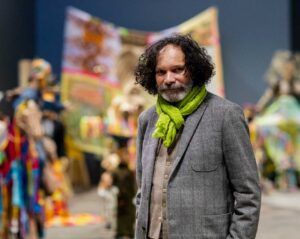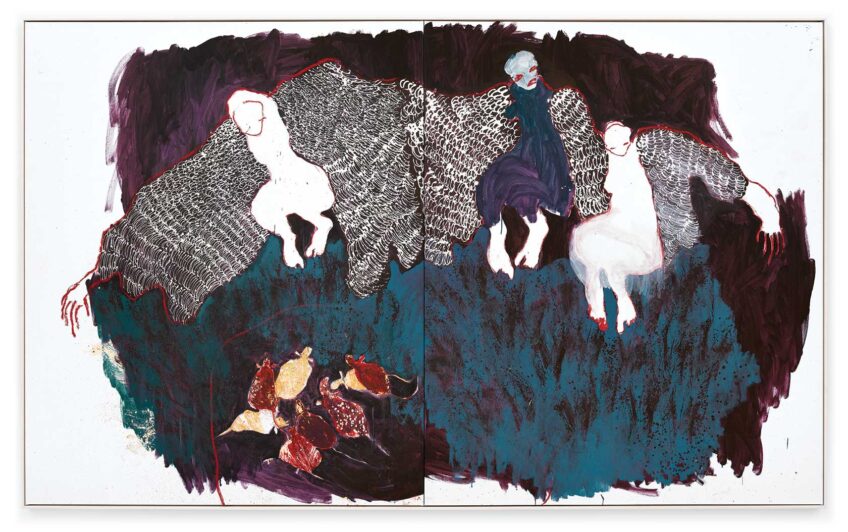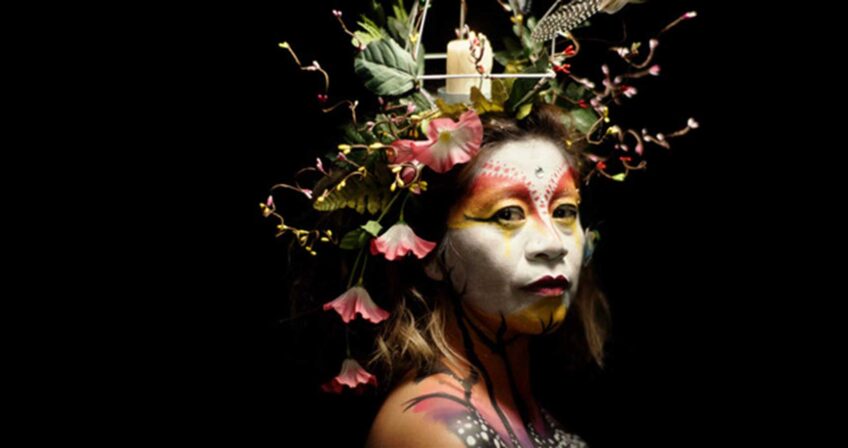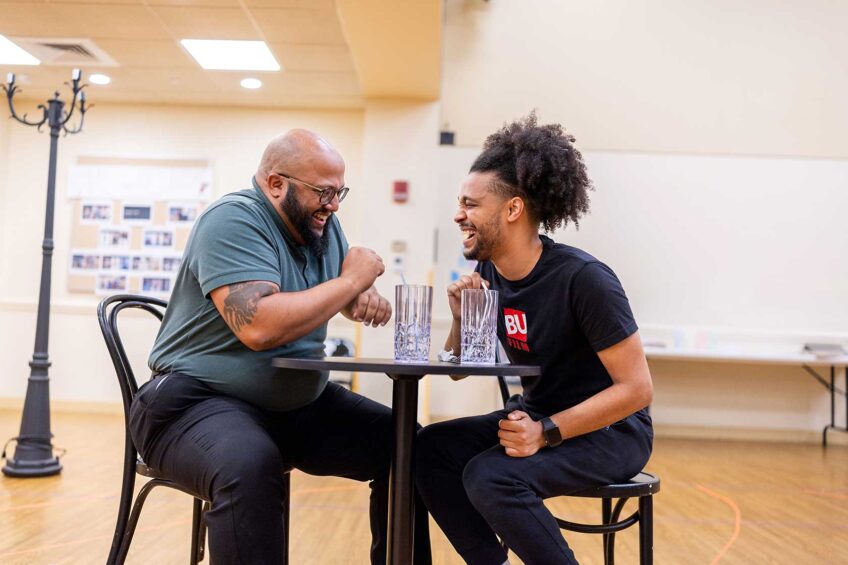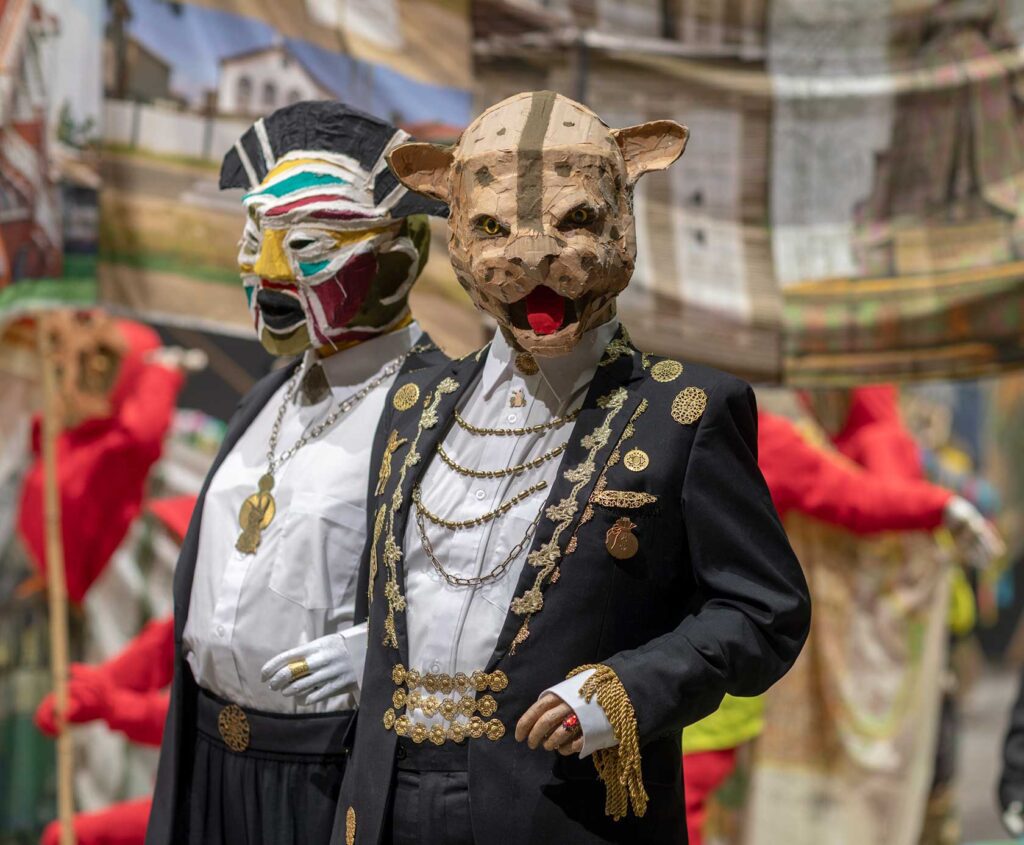
Banner Arts & Culture Sponsored by Cruz Companies
The Institute of Contemporary Art/Boston’s free East Boston gallery, the Watershed, opened its 2024 season last week with a striking — or rather, striding — installation.
“The Procession,” by Guyanese British artist Hew Locke OBE RA, makes its United States debut at the waterfront warehouse space, showcasing more than 140 figurative sculptures walking in unison.
A procession, or a collection of people gathering and moving together, has many applications in human life: a festival, a protest, a moment of worship, a walk of grief, an exciting voyage or a forced exodus. All of those instances come to bear in this installation, as figures of all ages, backgrounds and abilities walk together. Popular carnival characters like the Trinidadian Midnight Robber and Jamaican Pitchy Patchy walk next to pregnant women, soldiers, refugees and dancers.
The installation, commissioned by Tate Britain, references historical moments of colonization, globalization and cultural exchange as well as more contemporary issues like the Black Lives Matter movement, the war in Ukraine and rising sea levels. The life-size figures are adorned in colorful fabrics, intricate patchwork, applique and handmade possessions.
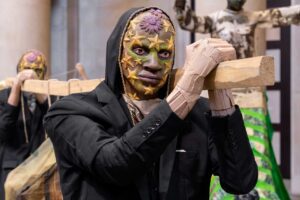
Installation view, Hew Locke: The Procession, Tate Britain Commission 2022, Tate Britain, Duveen Galleries, London, 2022. Photo by Joe Humphrys. © Hew Locke. All rights reserved, DACS/Artimage 2022 © Tate.
In many ways the piece feels like an alternate reality in which diverse groups of people march together, rather than against each other. Procession in all its forms is a universal human tool of connectivity across all cultures and divides.
“They’re moving into another life,” says Locke. “They may be coming from difficult times, they may be heading towards difficult times, but there’s an energy there, which is about hope.”
This energy reflects the impact of community gathering, of moving and approaching life’s challenges en masse. Collectively experiencing artwork can have a similar effect. By viewing the work, visitors to the Watershed become part of the procession, and Boston’s waterfront history of immigration and enslavement through the triangle trade join the other complicated histories in the work.
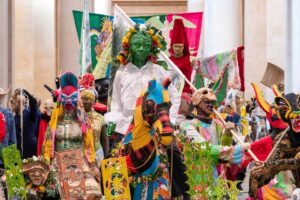
Installation view, Hew Locke: The Procession, Tate Britain Commission 2022, Tate Britain, Duveen Galleries, London, 2022. Photo by Joe Humphrys. © Hew Locke. All rights reserved, DACS/Artimage 2022 © Tate.
“Using cardboard, jewelry, medals and repurposed emblems of imperial power, Locke’s work engages with identity, collective histories and contemporary experiences of the long shadow of colonialism,” according to curators Ruth Erickson, the ICA’s Barbara Lee chief curator and director of curatorial affairs, and Anni A. Pullagura, consulting assistant curator.
“The Procession” is on view at the Watershed in East Boston through Sept. 2. The gallery is always free to all. With a purchased ticket to the ICA galleries in the Seaport, visitors can also take a water taxi from the ICA to the Watershed or vice versa.
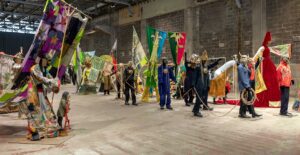
Hew Locke, The Procession, Tate Britain
Commission 2022. Installation view, Hew
Locke: The Procession, the Institute of
Contemporary Art/Boston, 2024. Photo: Mel
Taing. Courtesy the artist.
Locke’s installation is otherworldly. Grounded in history and laced with strife, the piece is also joyful and hopeful. It may cause visitors to reflect on where their own procession would be heading and what cultural and historical baggage they would be carrying with them.
Jill Medvedow, director of the ICA, says, “We are excited to invite our visitors to walk alongside the procession and experience the collective reasons for gathering in solidarity, migrating towards a hopeful future.”


